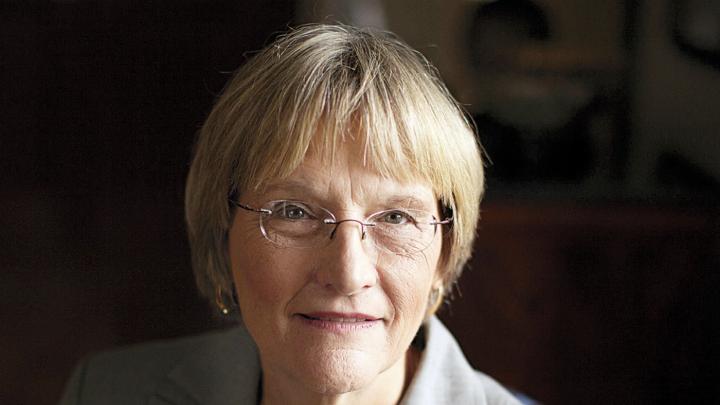Harvard is, at nearly 400 years old, still a work in progress. It endures because it changes. In its most recent century, one of the ways it has changed most dramatically is its ever wider inclusion of students and faculty from groups who were for many years not seen as an accepted part of its community. The outreach to students of limited financial resources began with President Conant’s program of national scholarships in 1934 and has become, through our financial aid initiatives, a commitment to affordability that now means one in five of our undergraduates are from families with incomes below $65,000 per year. Once a place where Booker T. Washington observed that he felt like “a huckleberry in a bowl of milk,” Harvard today is committed to building and supporting a student body of broad ethnic and racial diversity. Our incoming undergraduate class includes more African American and Latino students than ever before, 10.7 and 11 percent of the class respectively.
For women, as for minorities and low income students, things at the university have changed significantly. When I arrived here as Dean of the Radcliffe Institute in 2001 and immersed myself in the history of women at Harvard, I learned that I would not have been permitted to enter the undergraduate library until it opened to women in 1967, the fall of what would have been my senior year. That year, there was one tenured woman in the Arts and Sciences faculty.
Harvard has changed, but not enough. Today only about a quarter of the tenured faculty is female, and just one in ten of the faculty are Black, Latino, or mixed race. While these numbers suggest progress, they also underscore that we have a considerable way to go. We can and must do better. What’s more, such statistics only tell us about access; they don’t address the issue of inclusion: of how individuals who join our community regard their experience here. Just as we endeavor to attract the very most talented individuals, so we must provide an environment that fully nurtures those talents. This spring, a number of events have underscored the work that remains before us.
A theatre piece entitled “I, Too, am Harvard,” written and performed by a group of African-American students in the College, powerfully highlighted issues of marginalization and exclusion. It has sparked campaigns to address these concerns, here and at other universities. Its creators have reminded us that America is far from a post-racial society and that our national heritage and history of racial injustice persists.
An intensifying national focus on issues of sexual assault on college campuses has heightened our attention to the challenges sexual assault poses to the very foundations of inclusion and belonging: the fundamental safety and well-being of members of our community. Students have recounted experiences that have absolutely no place in a community that depends on openness and trust as an essential element of its very purpose. We must and will do better in committing ourselves to battling sexual assault and supporting its survivors.
In 1925, Langston Hughes published a poem entitled “I, Too” that served as inspiration for our talented undergraduates, as it has for so many individuals over the past nine decades. Relegated to eat in the kitchen, Hughes proclaims “Tomorrow,/I’ll be at the table.” 2014 is well beyond tomorrow. It is time for Harvard to ensure the fundamental justice that guarantees every member of this community an honored seat at the welcome table. Every group that makes up this richly diverse institution must feel confident in affirming, “We, Too, are Harvard.” We are at once many Harvards, one Harvard. That is our strength.
Sincerely,
Drew Faust







